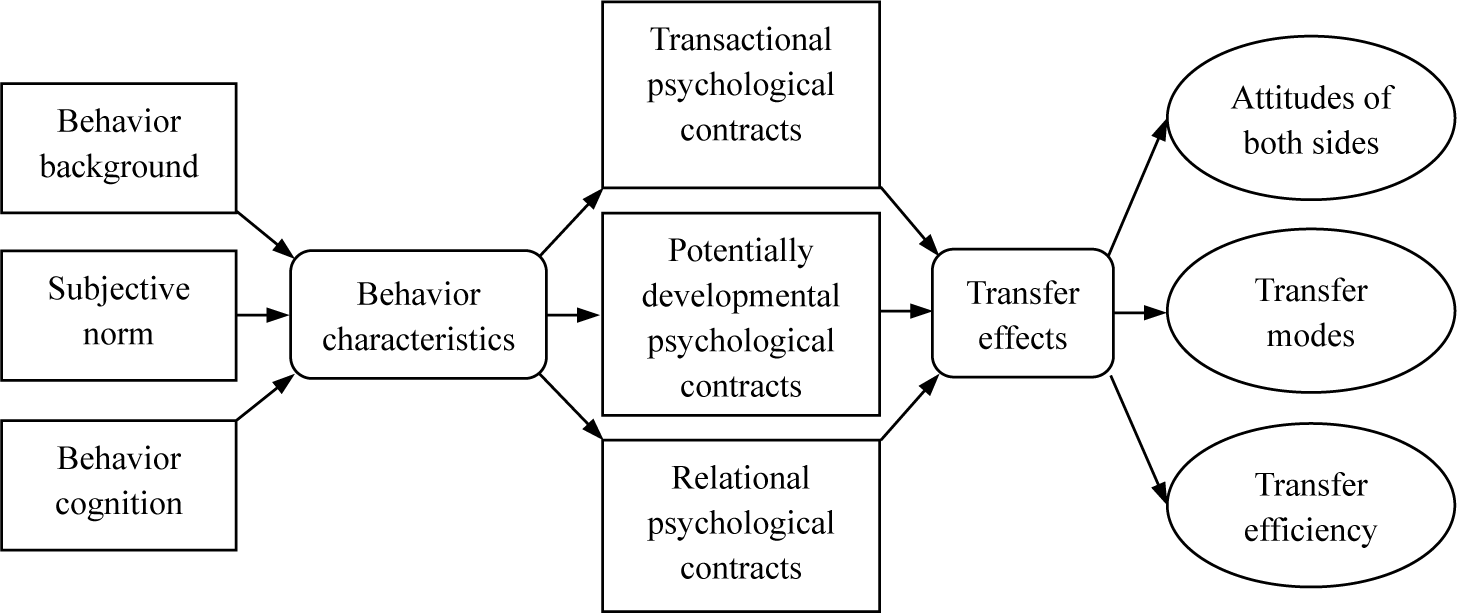Published online by Cambridge University Press: 09 March 2023
At present, the social economy is in a period of fast-paced change in China, with various modes of production and life evolving and emerging. The transfer of agricultural land is the transformation of the utilization mode of the main factors of production in rural areas, and it is one of the contents of the social and economic reform in rural areas. In 2021, the area of rural land transfer is up to 3.7×1011 m2 in China, an increase of 4.3% over the previous year. 1,239 counties (cities, districts) and 18,731 townships have established agricultural land management rights transfer centers to provide services such as policy consultation, information release, and contract signing for both sides of the transfer. Farmers are the subjects of agricultural land management and transfer. Their behaviors are affected by their psychology to some extent. In the long-term, dynamic, and gradual process of agricultural land transfer, it is particularly important to respect farmers’ wishes, pay attention to farmers’ psychology, and guide farmers’ behavior. However, only a few written contracts were signed. Most are verbal agreements of spontaneous or collective land transfers. The verbal agreements auto-execute to some extent within certain limits. The goals of farmers in farmland transfer are diversified, and their cognition, willingness and psychological identity affect the performance of the contract and the effect of transfer.
The psychological contract of agricultural land transfer can be defined as the transferor and transferee of agricultural land transfer. Through a certain psychological suggestion mode, through the subjective cognition and understanding of the rights and obligations of both parties, rather than the direct explicit expression, a contract relationship of rights and obligations is formed. The party awarding contract and the contractor are the subjects of agricultural land transfer. Therefore, the subjects of the psychological contract of agricultural land transfer include farmers, village collectives and enterprises, all of whom have equal status, forming their own psychological contracts. The forming process of the psychological contract of agricultural land transfer includes four steps. Step one is cognition and judgment. Both parties to the transfer are aware of and judge their own rights and obligations based on external environmental information and their own circumstances. Step two is psychological expectations. Before information is transmitted, both sides of the transmission transform cognition and judgment into psychological expectations. The third step is to convey psychological expectations. Both sides of transfer transmit psychological expectations by means of direct patterns, such as oral form and written form, and implicit ways, such as perception and comprehension. Step four is the formation of the psychological contract. Both sides of transfer reciprocally admit information of psychological expectations transmitted in implicit ways, forming psychological contracts. If they can’t come to an agreement on psychological contracts, a new four-step cycle is entered.
The forming of the psychological contract of agricultural land transfer is shown in Figure 1. First, farmers’ behavior background, such as the experiences of land lease and transfer, the targets of land transfer and education, has an effect on the building of psychological contracts and its type. On the one hand, the farmers who have the experience of land transfer and get high benefits from it are much more motivated than those who don’t have that experience or ever have dissension while transferring. On the other hand, the targets of transfer and the education level of farmers affect the type of psychological contracts. Second, Farmers’ subjective norms, mainly reflected in the difference in folk customs, will form various communication modes and take different measures to deal with breaching contracts while transferring. Third, farmers’ behavior cognition reflects in their comprehension of the capability of executing contracts, including bargaining power, decision-making level and managing modes of the rent. The ability of behavior cognition and control of farmers has a positive influence on their behavior intention and happened.
According to the above results, in order to promote the reposeful transfer and orderly development of agricultural land, the following suggestions are proposed: The first is to improve the agricultural land transfer policy system, establish and improve the institutional environment for agricultural land transfer, create conditions for the establishment of farmers’ behavioral psychological contracts in the process of agricultural land transfers, and guide farmers to establish relationship psychological contracts. The second is to improve the market system, properly cultivate and develop agricultural land transfer intermediaries, reduce transaction costs, and reduce the probability of farmers’ psychological contracts being broken. The third is to guide farmers to establish a positive agricultural land transfer psychology based on their resource endowments such as labor force quality and cultural quality, and encourage farmers to make agricultural land transfer decisions such as subcontracting, leasing, reselling, and interchanging.Figure 1.
Psychological contracts of agricultural land transfer forming
